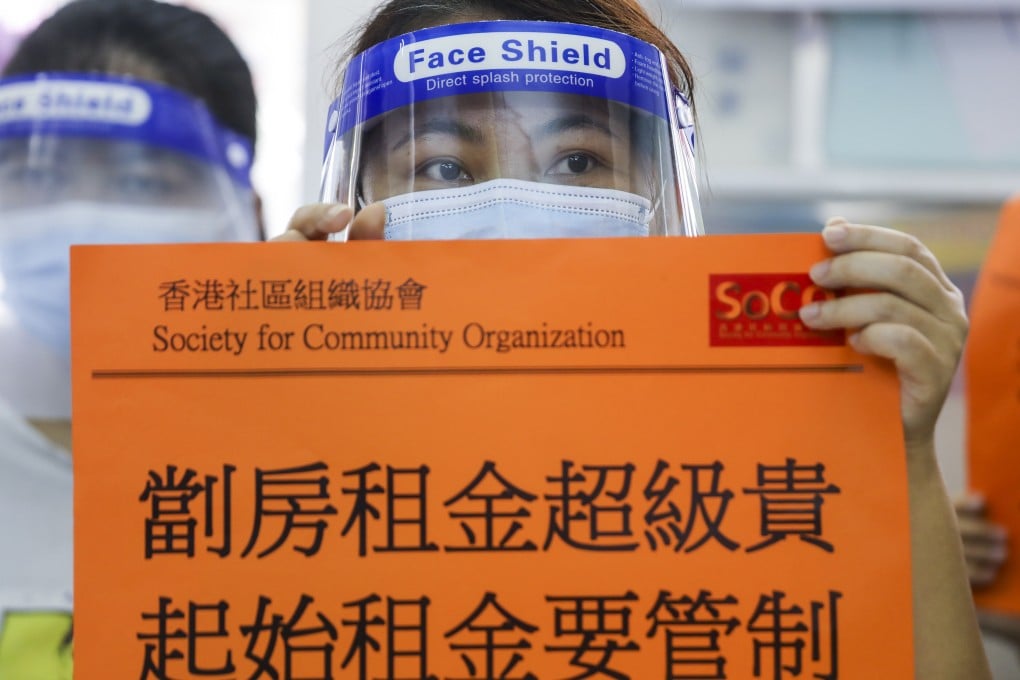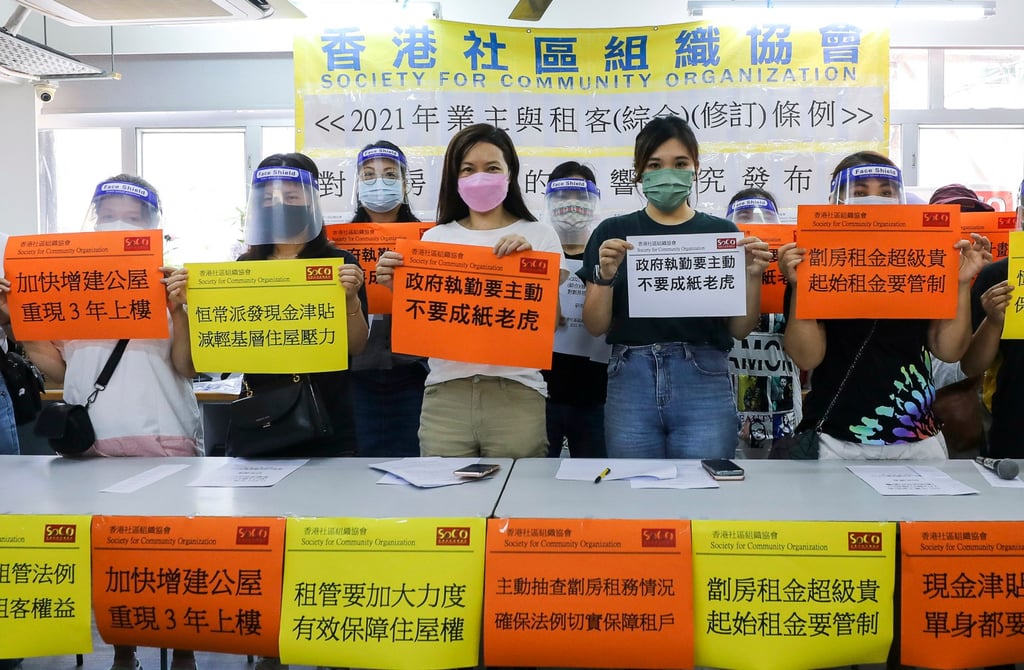Rent control law fails to help Hong Kong’s poorest and leaves loopholes for landlords, advocacy group says
- Legislation to control rent has failed to help the vulnerable and encouraged rent increases, Society for Community Organisation says
- Group appeals to government to put caps on rent levels to ease the problem

An advocacy group has said legislation designed to control rents has failed to help Hong Kong’s underprivileged and encouraged rent increases.
The Society for Community Organisation appealed to the government to set caps on rent levels in a bid to alleviate the problem.
The rent control legislation prohibits landlords of subdivided flats from raising rents in the first two years of a new tenancy.
An online survey conducted by the society and completed by 291 tenants of subdivided flats between January and May found that 60 per cent said they noticed the rents of similar units had increased after the introduction of the new law.

Around 10 per cent of 231 tenants, whose tenancies had not yet expired, had their rents raised by an average of HK$300 (US$38) after the law was implemented and the rent-to-income ratio had increased from 40.9 per cent in 2021 to 42 per cent in 2022.